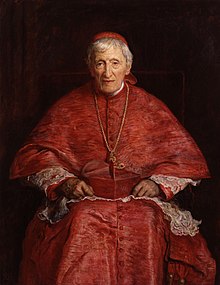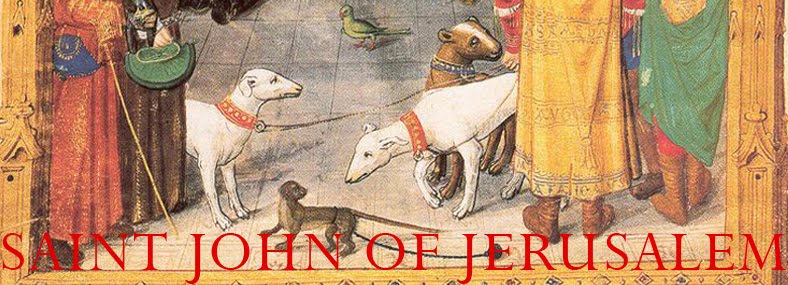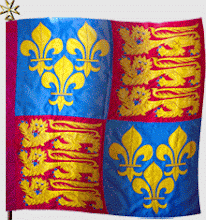
NEWMAN AND THE CHURCH

We should all be overjoyed in England that the Holy Father has announced that Blessed John Henry Newman is to be raised fully to the altars as a Saint later this year. Thank you, Pope Francis! Today we rejoice with him also on the Feast of the Chair of Peter.
Newman's influence on the Church far surpasses the boundaries of England in the 19th century, though he single-handedly removed all intellectual justification for the continuation of Protestantism in this land, and left the Church of England merely an empty husk of customs and the relics of Christian buildings.
Indeed Newman may fairly be described as the Doctor of the 21st Century, for his writings address precisely the problems and ailments which Holy Mother Church suffers in our own age.
It is easy for malicious people, whom the Church has never lacked, to distort the meaning of the writings of the Saints to their own end if people have never read them for themselves, and certain progressive elements in the Church have, certainly around the time of his beatification, misrepresented his teaching by selecting passages from Newman's writings to imply support for relativist and modernist positions. Nothing could be further from the truth, Newman warns us of the danger of what he called "the liberalisation of Religion", and his writings, based upon immemorial Tradition, read as freshly today as when they were composed. For all the progress of the 20th century, liberal thinkers are still stuck in the mire of outdated modernism, condemned by, and outside the mind of, Holy Mother Church - the moral horrors we see today are merely developments of the errors Newman saw and condemns so clearly. One uses 'condemns' in the presest tense quite intentionally, as his writings are now to last as a gift to the Church forever.
In order that members of the Order of Malta may not feel themselves unarmed for the battle of Tuitio Fidei in which they are by joyful obligation engaged, we publish here an article from the Times of London, May 1879, which gives the famous Biglietto speech in full, the day of our new Saint's elevation to the Sacred Purple.
On Monday morning, May 12, Dr. Newman went to the Palazzo della Pigna, the residence of Cardinal Howard, who had lent him his apartments to receive there the messenger from the Vatican bearing the biglietto from the Cardinal-Secretary of State, informing him that in a secret Consistory held that morning his Holiness had deigned to raise him to the rank of Cardinal. By eleven o'clock the rooms were crowded with English and American Catholics, ecclesiastics and laymen, as well as many members of the Roman nobility and dignitaries of the Church, assembled to witness the ceremony. Soon after midday the consistorial messenger was announced. He handed the biglietto to Dr. Newman, who, having broken the seal, gave it to Dr. Clifford, Bishop of Clifton, who read the contents. The messenger having then informed the newly-created Cardinal that his Holiness would receive him at the Vatican the next morning at ten o'clock to confer the birretta upon him, and having paid the customary compliments, his Eminence replied in what has become known as his "Biglietto Speech" as follows:—
Vi ringrazio, Monsignore, per la participazione che m'avete fatto dell' alto onore che il Santo Padre si è degnato conferire sulla mia umile persona—
And, if I ask your permission to continue my address to you, not in your musical language, but in my own dear mother tongue, it is because in the latter I can better express my feelings on this most gracious announcement which you have brought to me than if I attempted what is above me.
First of all then, I am led to speak of the wonder and profound gratitude which came upon me, and which is upon me still, at the condescension and love towards me of the Holy Father in singling me out for so immense an honour. It was a great surprise. Such an elevation had never come into my thoughts, and seemed to be out of keeping with all my antecedents. I had passed through many trials, but they were over; and now the end of all things had almost come to me, and I was at peace. And was it possible that after all I had lived through so many years for this?
Nor is it easy to see how I could have borne so great a shock, had not the Holy Father resolved on a second act of condescension towards me, which tempered it, and was to all who heard of it a touching evidence of his kindly and generous nature. He felt for me, and he told me the reasons why he raised me to this high position. Besides other words of encouragement, he said his act was a recognition of my zeal and good service for so many years in the Catholic cause; moreover, he judged it would give pleasure to English Catholics, and even to Protestant England, if I received some mark of his favour. After such gracious words from his Holiness, I should have been insensible and heartless if I had had scruples any longer.
This is what he had the kindness to say to me, and what could I want more? In a long course of years I have made many mistakes. I have nothing of that high perfection which belongs to the writings of Saints, viz., that error cannot be found in them; but what I trust that I may claim all through what I have written, is this,—an honest intention, an absence of private ends, a temper of obedience, a willingness to be corrected, a dread of error, a desire to serve Holy Church, and, through Divine mercy, a fair measure of success. And, I rejoice to say, to one great mischief I have from the first opposed myself. For thirty, forty, fifty years I have resisted to the best of my powers the spirit of liberalism in religion. Never did Holy Church need champions against it more sorely than now, when, alas! it is an error overspreading, as a snare, the whole earth; and on this great occasion, when it is natural for one who is in my place to look out upon the world, and upon Holy Church as in it, and upon her future, it will not, I hope, be considered out of place, if I renew the protest against it which I have made so often.
Liberalism in religion is the doctrine that there is no positive truth in religion, but that one creed is as good as another, and this is the teaching which is gaining substance and force daily. It is inconsistent with any recognition of any religion, as true. It teaches that all are to be tolerated, for all are matters of opinion. Revealed religion is not a truth, but a sentiment and a taste; not an objective fact, not miraculous; and it is the right of each individual to make it say just what strikes his fancy. Devotion is not necessarily founded on faith. Men may go to Protestant Churches and to Catholic, may get good from both and belong to neither. They may fraternise together in spiritual thoughts and feelings, without having any views at all of doctrine in common, or seeing the need of them. Since, then, religion is so personal a peculiarity and so private a possession, we must of necessity ignore it in the intercourse of man with man. If a man puts on a new religion every morning, what is that to you? It is as impertinent to think about a man's religion as about his sources of income or his management of his family. Religion is in no sense the bond of society.
Hitherto the civil Power has been Christian. Even in countries separated from the Church, as in my own, the dictum was in force, when I was young, that: "Christianity was the law of the land". Now, everywhere that goodly framework of society, which is the creation of Christianity, is throwing off Christianity. The dictum to which I have referred, with a hundred others which followed upon it, is gone, or is going everywhere; and, by the end of the century, unless the Almighty interferes, it will be forgotten. Hitherto, it has been considered that religion alone, with its supernatural sanctions, was strong enough to secure submission of the masses of our population to law and order; now the Philosophers and Politicians are bent on satisfying this problem without the aid of Christianity. Instead of the Church's authority and teaching, they would substitute first of all a universal and a thoroughly secular education, calculated to bring home to every individual that to be orderly, industrious, and sober, is his personal interest. Then, for great working principles to take the place of religion, for the use of the masses thus carefully educated, it provides—the broad fundamental ethical truths, of justice, benevolence, veracity, and the like; proved experience; and those natural laws which exist and act spontaneously in society, and in social matters, whether physical or psychological; for instance, in government, trade, finance, sanitary experiments, and the intercourse of nations. As to Religion, it is a private luxury, which a man may have if he will; but which of course he must pay for, and which he must not obtrude upon others, or indulge in to their annoyance.
The general character of this great apostasia is one and the same everywhere; but in detail, and in character, it varies in different countries. For myself, I would rather speak of it in my own country, which I know. There, I think it threatens to have a formidable success; though it is not easy to see what will be its ultimate issue. At first sight it might be thought that Englishmen are too religious for a movement which, on the Continent, seems to be founded on infidelity; but the misfortune with us is, that, though it ends in infidelity as in other places, it does not necessarily arise out of infidelity. It must be recollected that the religious sects, which sprang up in England three centuries ago, and which are so powerful now, have ever been fiercely opposed to the Union of Church and State, and would advocate the un-Christianising of the monarchy and all that belongs to it, under the notion that such a catastrophe would make Christianity much more pure and much more powerful. Next the liberal principle is forced on us from the necessity of the case. Consider what follows from the very fact of these many sects. They constitute the religion, it is supposed, of half the population; and, recollect, our mode of government is popular. Every dozen men taken at random whom you meet in the streets has a share in political power,—when you inquire into their forms of belief, perhaps they represent one or other of as many as seven religions; how can they possibly act together in municipal or in national matters, if each insists on the recognition of his own religious denomination? All action would be at a deadlock unless the subject of religion was ignored. We cannot help ourselves. And, thirdly, it must be borne in mind, that there is much in the liberalistic theory which is good and true; for example, not to say more, the precepts of justice, truthfulness, sobriety, self-command, benevolence, which, as I have already noted, are among its avowed principles, and the natural laws of society. It is not till we find that this array of principles is intended to supersede, to block out, religion, that we pronounce it to be evil. There never was a device of the Enemy so cleverly framed and with such promise of success. And already it has answered to the expectations which have been formed of it. It is sweeping into its own ranks great numbers of able, earnest, virtuous men, elderly men of approved antecedents, young men with a career before them.
Such is the state of things in England, and it is well that it should be realised by all of us; but it must not be supposed for a moment that I am afraid of it. I lament it deeply, because I foresee that it may be the ruin of many souls; but I have no fear at all that it really can do aught of serious harm to the Word of God, to Holy Church, to our Almighty King, the Lion of the tribe of Judah, Faithful and True, or to His Vicar on earth. Christianity has been too often in what seemed deadly peril, that we should fear for it any new trial now. So far is certain; on the other hand, what is uncertain, and in these great contests commonly is uncertain, and what is commonly a great surprise, when it is witnessed, is the particular mode by which, in the event, Providence rescues and saves His elect inheritance. Sometimes our enemy is turned into a friend; sometimes he is despoiled of that special virulence of evil which was so threatening; sometimes he falls to pieces of himself; sometimes he does just so much as is beneficial, and then is removed. Commonly the Church has nothing more to do than to go on in her own proper duties, in confidence and peace; to stand still and to see the salvation of God.
Mansueti hereditabunt terram,
Et delectabuntur in multitudine pacis.
His Eminence spoke in a strong, clear voice, and although he stood the whole time, he showed no signs of fatigue. After taking his seat, those present went up in turn to compliment him, Monsignor Stonor, at the request of Monsignor Cataldi, Master of the Ceremonies to His Holiness, presenting those with whom His Eminence was unacquainted. Among the many present were Dr. Moran, Bishop of Ossory; Monsignor Lenti, Vice-Gerent of Rome; Dr. O'Callaghan, Rector of the English College; Dr. Giles, Vice-Rector of the English College; Monsignor Kirby, Rector of the Irish College; Dr. Campbell, Rector of the Scotch College; Dr. Smith, of the Propaganda; Dr. O'Bryen; Dr. Hostlot, Rector of the American College; F. Mullooly, Prior of St. Clement's; Dr. Mazière Brady, Lady Herbert of Lea, Marchioness Ricci, Baroness Keating, Prince and Princess Giustiniani Bandini, Commendatore de Rossi, Count de Redmond, General Kanzler, Professor Blackie, Sir Hungerford Pollen, Monsignors Folicaldi, Rinaldi, de Stacpoole and others, and nearly all the English residents now in Rome, both Catholic and Protestant.
[This Reply was telegraphed to London by the correspondent of The Times and appeared in full in that paper the next morning. Moreover, through the kindness of Fr. Armellini, S.J., who during the night translated it into Italian, it was also given in full in the Osservatore Romano of the following day.]
John Henry Newman, pray for us!
Category (click to see all related):
Catholic life,
Faith,
Notices of Future Events











